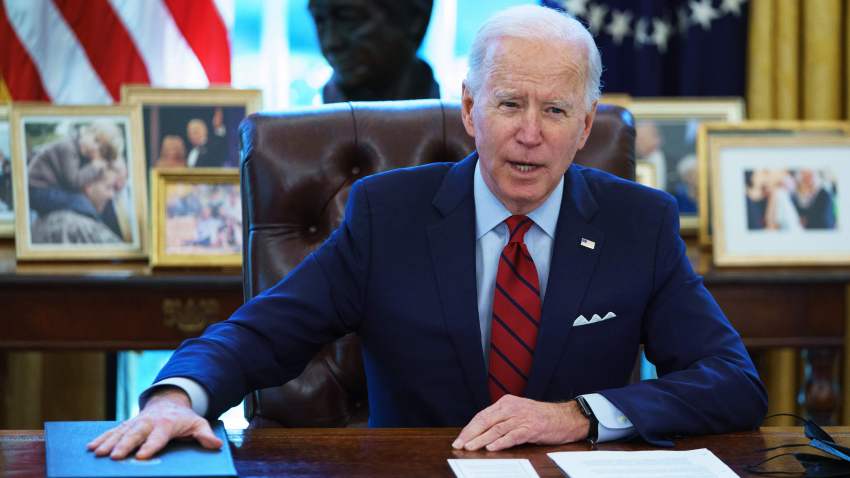TOM PLATE WRITES – The first major American post-election-result return is being able to feel that the ground under your feet isn’t always shaking and your head isn’t always aching. Yes, US President Joe Biden is doing that for us, especially in this early wave of foreign-policy appointments. He is acting like a president.
Asians who know a lot about Antony Blinken, Biden’s nominee for secretary of state, admire him. It is the same with Kurt Campbell, who has been appointed Indo-Pacific coordinator on the National Security Council. (“Hope Biden will listen to his advice,” Southeast Asian diplomat Tommy Koh told me.)
The nominated No 2 official for the State Department is Wendy Sherman, who is keyed especially on Asia. Up for the No 3 job is Victoria Nuland. They are both simply out-and-out sharp.
Avril Haines, former deputy director of national intelligence, has already been Senate-approved with no-fuss bipartisan speed as director of national intelligence. The president’s principal intel adviser leads an agency that heads 17 various US intelligence agencies. Everyone I know of who knows Haines praises the choice.
Career diplomat Linda Thomas-Greenfield has been proposed for the position of US ambassador to the United Nations. She is a veteran of the US Foreign Service, which under the previous president got about the same measure of respect as the UN itself – none.
America’s UN ambassador not only gets the spotlight at the Security Council but a seat as well in Washington in the president’s cabinet. Formal Senate confirmation is required, but this will not be a problem for Thomas-Greenfield.
What is less certain is whether the UN will enjoy more meaningful use and genuine respect under Biden than under the previous guy. This is key. As downtrodden and inefficient as the UN might be, it remains the pre-eminent organisation for peace and world order.
A perceptible uptick in conflict easement, not to mention global diplomatic manners, would arise if only the five permanent members of the Security Council – facing a potent and puzzling pandemic, nuclear proliferation, horrendous climate challenge and a hundred other problems of peace and security – would operate with better teamwork.
The key to a movement towards a better norm would have to come from Beijing and Washington. However, the ways and means of both make it difficult to see this happening.
The Chinese government relies on unsophisticated “wolf warrior” growling and pushy policies designed to satiate the pride of the folks at home perhaps as much as anything else. No matter how discomforting to neighbours, Beijing does not seem to care all that much about what anyone thinks. Opposition to wolf warrior diplomacy is for wimpy lambs.
For its part, the patented US “soft power” gambit seeks to present to the world the shimmer of a kinder, gentler nation but, these days, this tattered brand is hard to peddle. Bombing a foreign political problem rarely solves it, and regime change often changes little or changes bad to worse.
The US problem in coexisting with regimes it does not like arises again and again. How sinlessly special is the US? Brave scholarship from the American academy across the decades has found the persistence of US foreign intervention telling.
A recent essay from Jackson Lears, editor of Raritan and distinguished professor of history at Rutgers University, comes down hard on the insolence of American public intellectuals for their part in militarism: “Few sights in Washington are more familiar than an intellectual urging ‘total war’ from the safety of the keyboard.”
In his essay this month in The New York Review of Books, Lears tracks America’s own wolf warrior trail from Iran to Guatemala through Cuba, Congo, Vietnam, Chile, Nicaragua, El Salvador, Iraq and Libya.
It is mainly China, no angel itself, that gets the rap in the US news media, but not from Lears: “Everybody does not do this; the United States does, which is why global surveys repeatedly have shown that the US is widely believed to be the greatest threat to world peace.”
A proper relaunching of an exceptional American democratic spirit cannot proceed apace, even with “you know who” and his odious team sullenly out of power, without more self-reflection. As well-meaning as Biden might be – as is reflected in his solid appointments to date – America will have to get under control the debilitating self-delusion that it is a nation of the highest virtue.
America’s elite generally do not perceive the wide mistrust. The continuing rise of China, whatever its grievous flaws in important categories of internal conduct and in all of which America claims superiority, seems for much of the world less of an outrageous development than it does for Washington.
Yes, China’s wolf warrior behavior would seem considerably more alarming if the standard for superpower conduct had been set higher by the US itself. Why is it always so telling when one asks of another something that was obviously too difficult to ask of oneself?
Having to sort out such a heavy legacy lands at the feet of Biden and his “best and brightest” foreign policy crew. It seems almost unfair to face a burden so soon at the outset of his administration.
Yet for a long time, many of the better folk now entrusted with the governance of foreign policy have shared – and still share – the simplistic view of international right and wrong that undermines US credibility. This is one mode of thought that should be broadened. Leaders without vision are prone to go down blind alleys.
Tom Plate, clinical professor and distinguished scholar of Asian and Pacific Studies at Loyola Marymount University, is vice-president of the Pacific Century Institute

